Травы и специи в Израиле – Где, Самый популярный, и многое другое
Сегодня мы посетим рынки и специализированные магазины в поисках трав и специй в разных местах Израиля..
За прошедшую неделю, мы посетили три места, где продаются травы, специи, сухофрукты, и орехи в Израиле. Я не повар и не критик еды. Эти визиты были случайно, но я решила воспользоваться случаем и поговорить о травах и специях.
Оглавление
Где искать травы и специи в Израиле?
Прежде чем мы доберемся до мест, которые мы посетили, давайте ответим на вопрос. Самый простой ответ супермаркеты. И хотя большинство супермаркетов имеют специи, орешки, и сухофрукты, как правило, ассортимент не большой. Таким образом, Я хотел бы предложить посещение рынки. Вот несколько полезных ссылок:
- Рынок Махане Иегуда в Иерусалиме
- Лучшие рынки Тель-Авива и Яффо
- Тальпиот, Хайфа
Помимо рынков, Вы можете посетить специализированные магазины, и мы посетим два из них в этой статье.
Разнообразие трав и специй
Что ожидать? Короткий ответ почти все. В Израиле, есть евреи со всего мира. Что касается специй, Вы можете найти в основном ближневосточные, североафриканский, и европейский.
Самые популярные травы и специи
Это самый популярный список основан на моем опыте. И если я что-то забыл, оставить комментарий ниже. Также, порядок появления не имеет никакого значения.
- Мята, также известный как обычный мята, является довольно популярным, и многие люди выращивают его сами по себе. Чаще всего его добавляют в чай или даже в горячую воду с листьями мяты без чая.. Во многих ресторанах, они предлагают добавить листья мяты в свой черный чай (без дополнительной оплаты). Еще одно использование мяты - в качестве начинки для салатов.. Обычно, идет в салаты с сыром моцарелла.
- затар не является специфическими травами, но из-за своей популярности, Назову его, а также. Это семейство трав, которое в основном включает орегано., немного базилика с тимьяном, тимьян, и соленых. Иногда они также добавляют сумах, укроп, и соль. Существуют различные типы затар. В основном используется в салатах и выпечке..
- паприка это одна из моих любимых специй. Особенно копченая паприка соли является одним из лучших смесей для курицы.
- Кориандр используется уже много лет. Он упоминается в древних еврейских писаний, а ученые даже нашли остатки кориандра в гробнице египетского царя Тутанхамона. Кориандр добавляют во многие салаты и рагу.
- Укроп добавляют в рагу и салаты. Например, Цацики.
- Розмари легко выращивать самостоятельно. И обычно добавляют к картофелю, мясо, и рыбы.
- шалфей Другой популярный завод. Существуют различные виды шалфея. Обычно добавляют в пасту и соусы.. Многие люди пьют.
- Лимонная Вербена, также известный как лимонный пчелиный куст, часто используется в напитках (аналогично чайным листьям).
- Бэзил широко используется в пицце, макаронные изделия, выпечка, и соус песто.
- Древнегреческие и римляне отметили, что ошибки не близки к орегано. Они думали, что орегано защищает от злых духов и использовали его для очищения и защиты - сегодня, орегано используется в пицце, макаронные изделия, выпечка, и омлеты.
- Вы можете найти кунжут в двух формах. Первый из них является прямое использование. Например, добавляется в салаты и выпечку поверх бурека. И второе использование является косвенным. Сочетается в тахини, Хумус, и половина, которые являются общими в Израиле.
- петрушка часто используется для украшения различных блюд.
- Тимьян является ароматической травой, используемой для приготовления приправы продуктов и кондитерских изделий. Хотя он имеет свой аромат и смелый вкус, не затемняет и не скрывает вкус других специй. Из-за этого, он популярен в кухне.
Рынок Левинский
Первое место, которое я посетил, было Рынок Левинский (для подробного руководства, смотрите Рынок Левинский и Рынки В Тель-Авиве). Рынок Левинский это не обычный рынок. Продает не все продукты. И это в основном сосредоточено на специях и орехах.
Израильтянин любит оливки. Во многих местах продают их, и в последние годы фермерские хозяйства начали предлагать оливковое комплектование. Относительно недавно, мы приняли участие в сбор оливок на оливковом масле Галили.
Обычно существует несколько десятков видов оливок и около полдюжины видов оливкового масла.. Кроме того, есть стойки со специями, чаи, и сухофрукты. Вот несколько фотографий из Рынок Левинский:
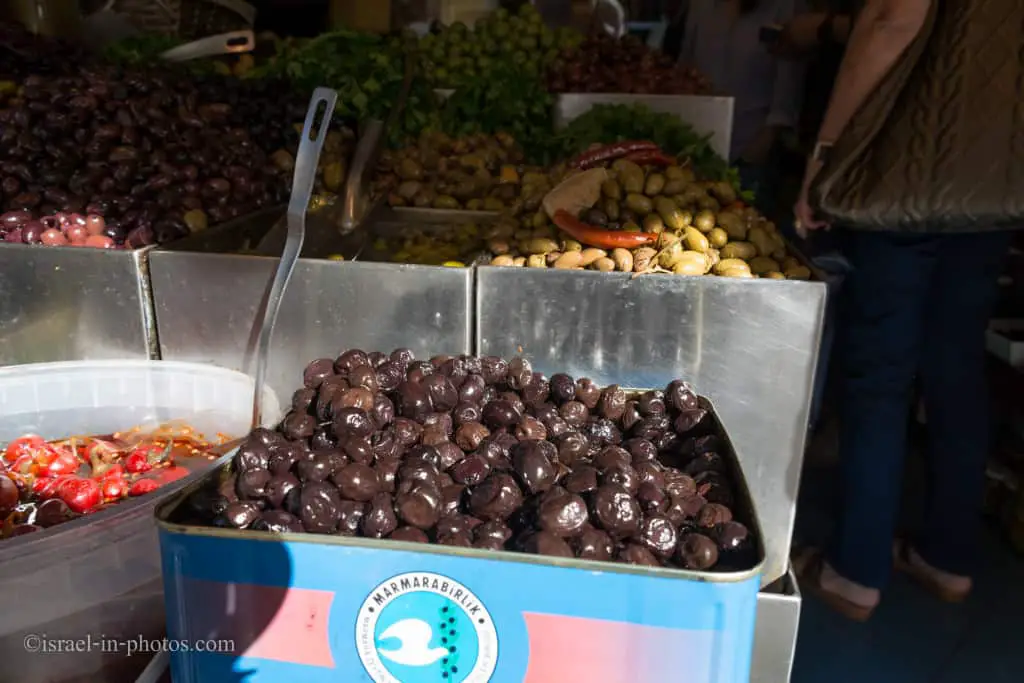
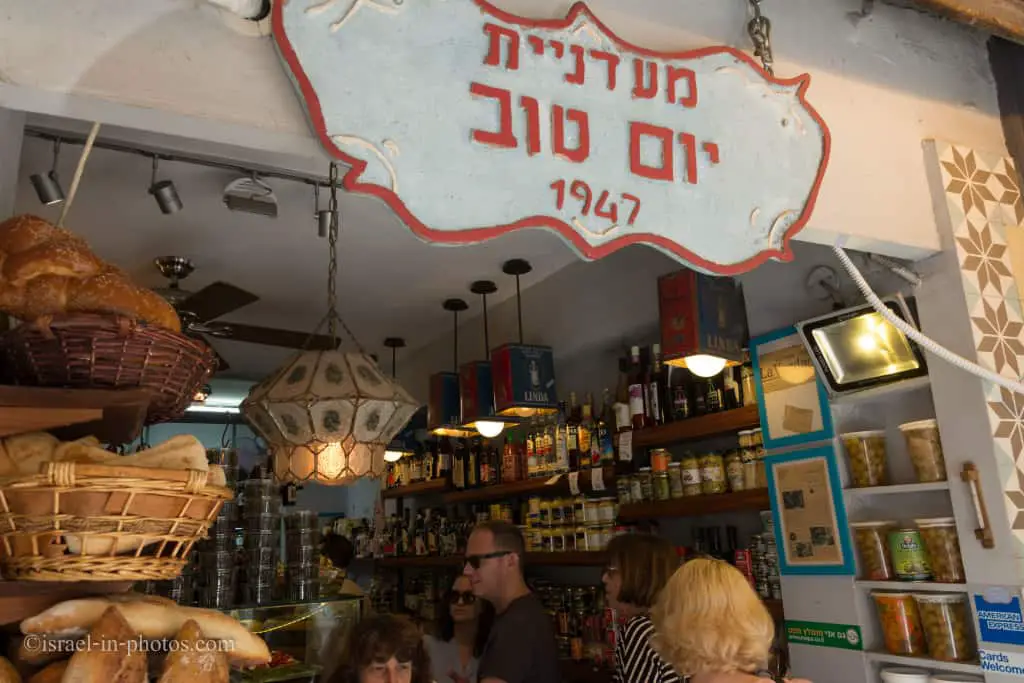
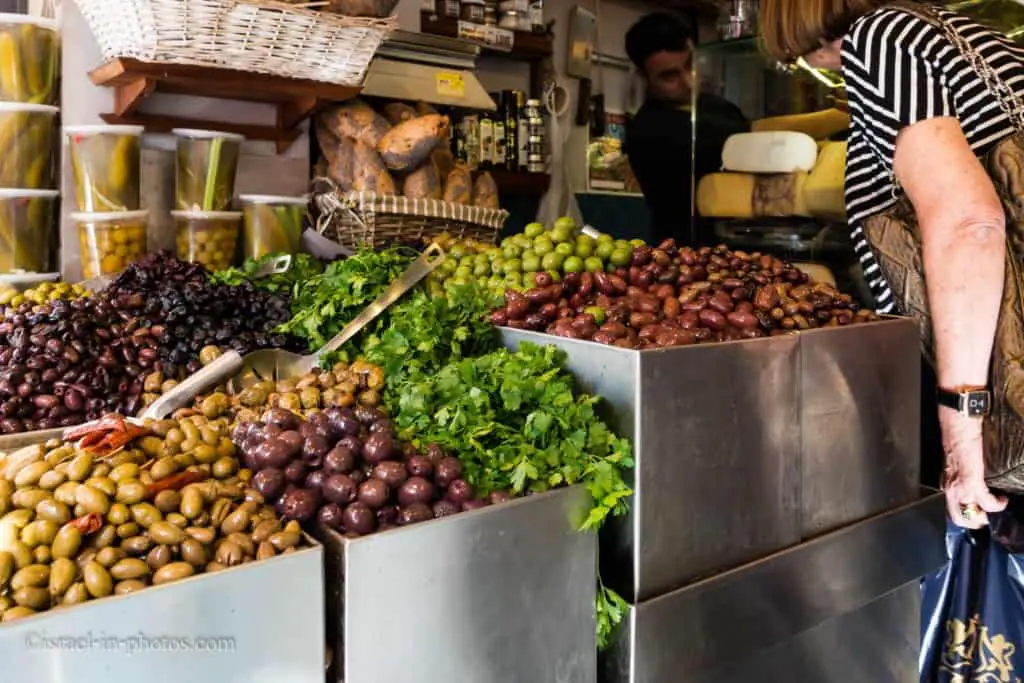
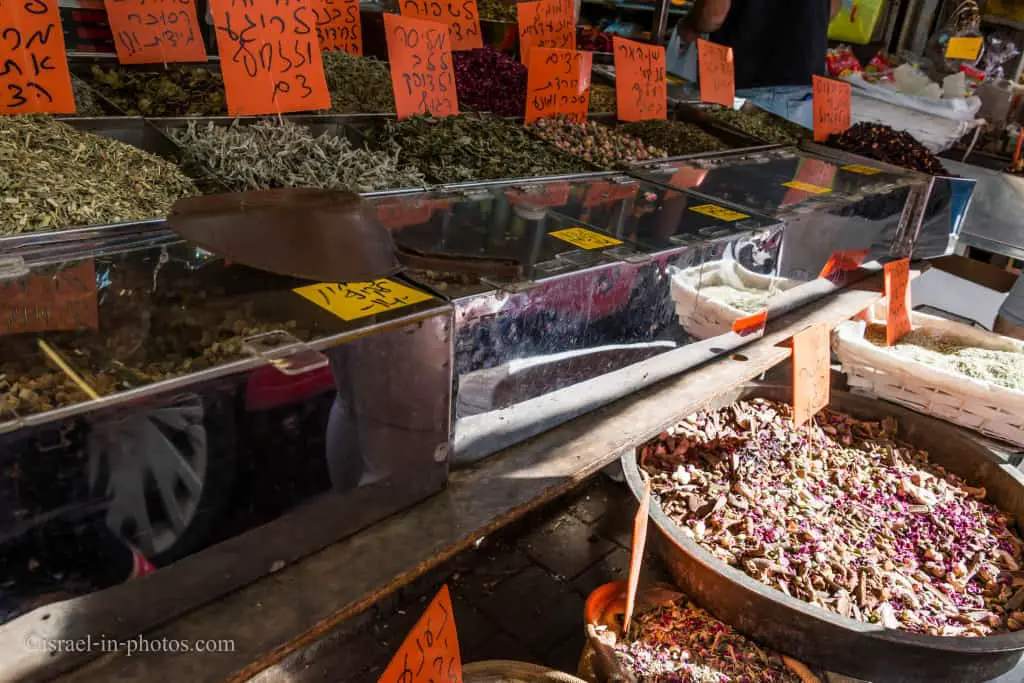
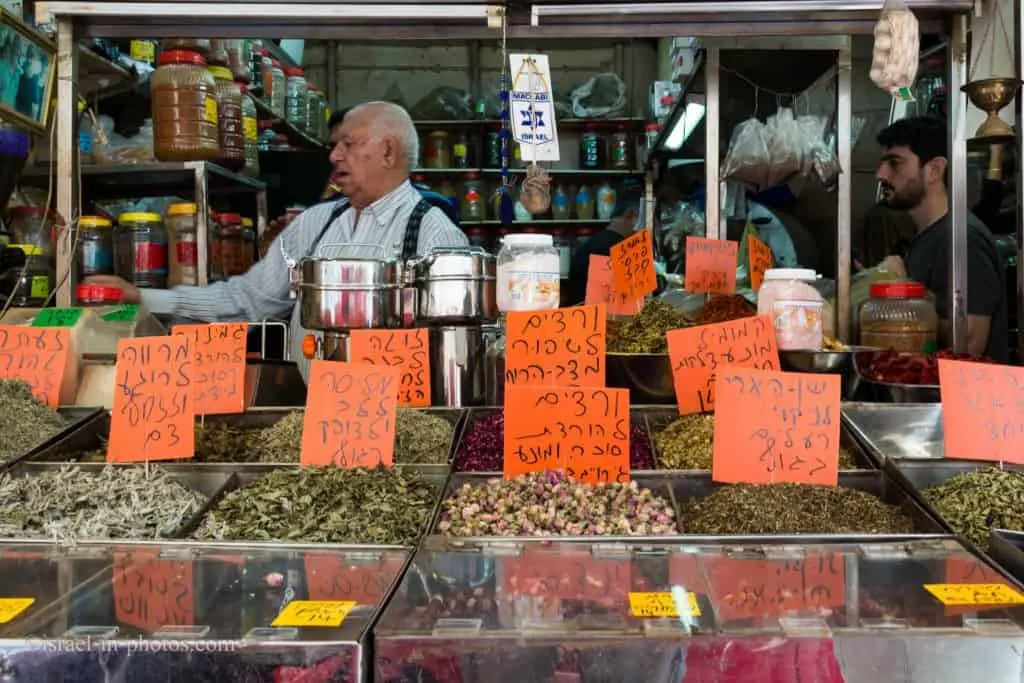
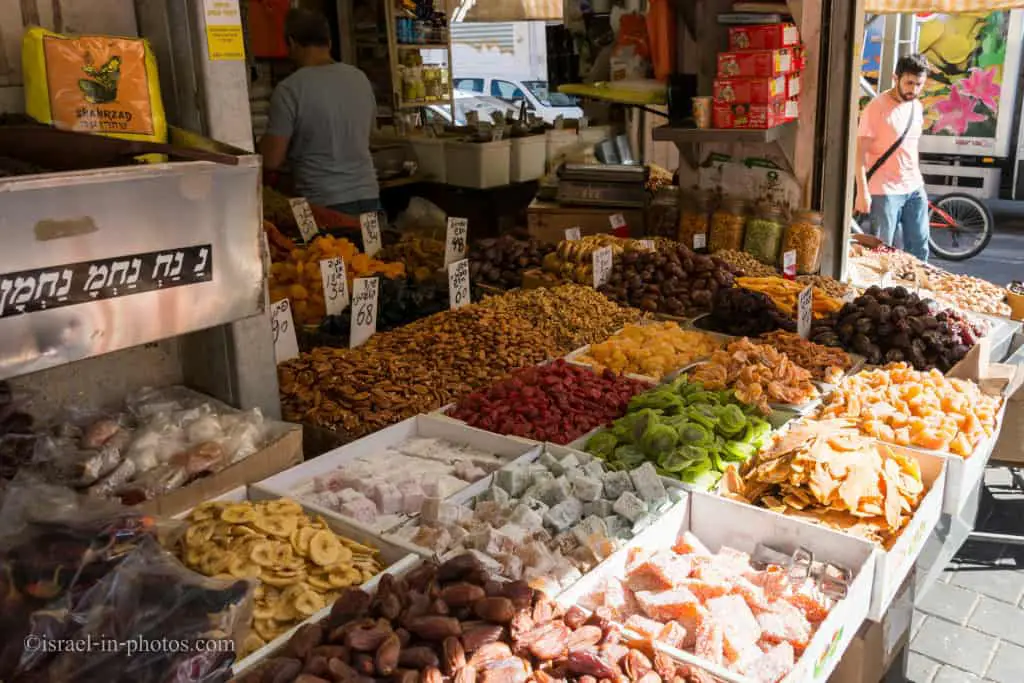
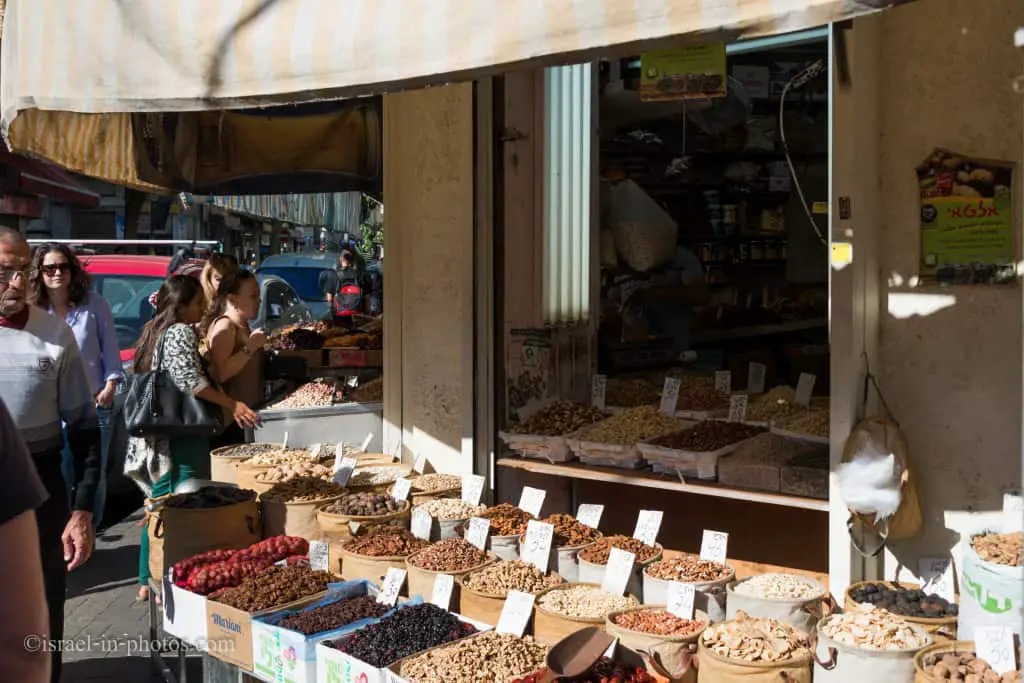
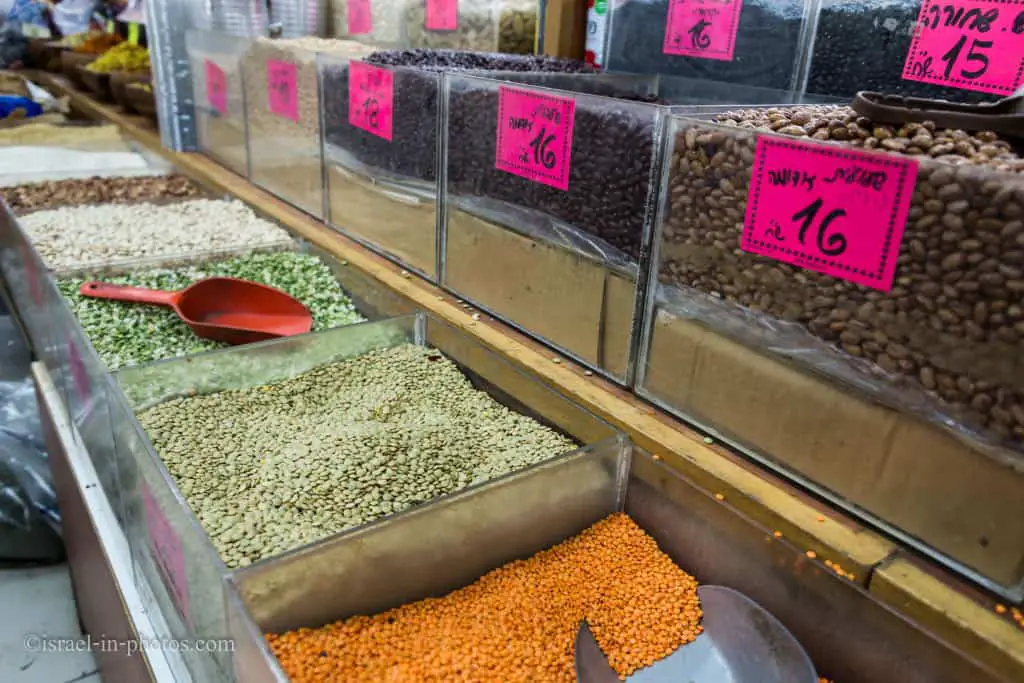
Различные типы бобов также весьма популярны. Они либо добавляют в салаты, рагу, и другие блюда. А так как я уже говорил бобы, два любимых блюда уличной еды в Израиле в основном готовятся из бобов. Можете ли вы угадать, какие из них?
Первый - хумус, а второе фалафель.
Сухофрукты всегда включают изюм и даты, так как они оба выращенные.
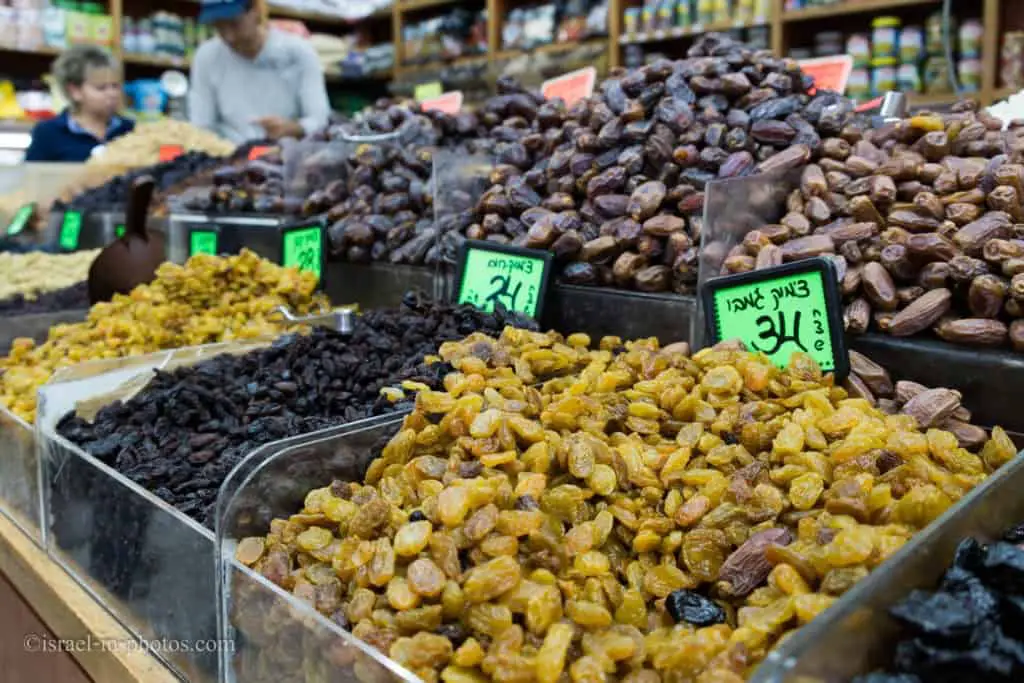
Большинство магазинов предлагают различные смеси специй для различных блюд.
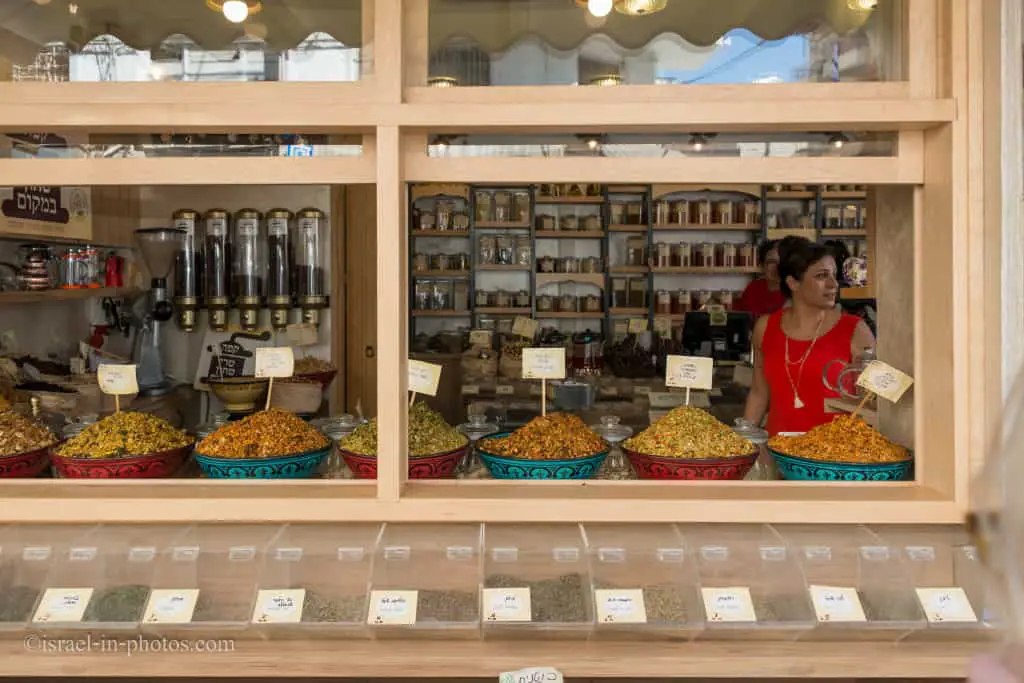
В последние годы, кулинарные туры, включающие дегустацию, стали очень популярны на туристических рынках.. Я видел их на рынках Тель-Авива и Иерусалима. И это одна из них:
Дерех Ха-Тавлиним, Вифлеем Галилейский
Следующее место, которое мы посетим, это специализированный магазин под названием Дерех Ха-Тавлиним в Вифлеем Галилейский. И они, вероятно, самый большой выбор специй в Израиле.
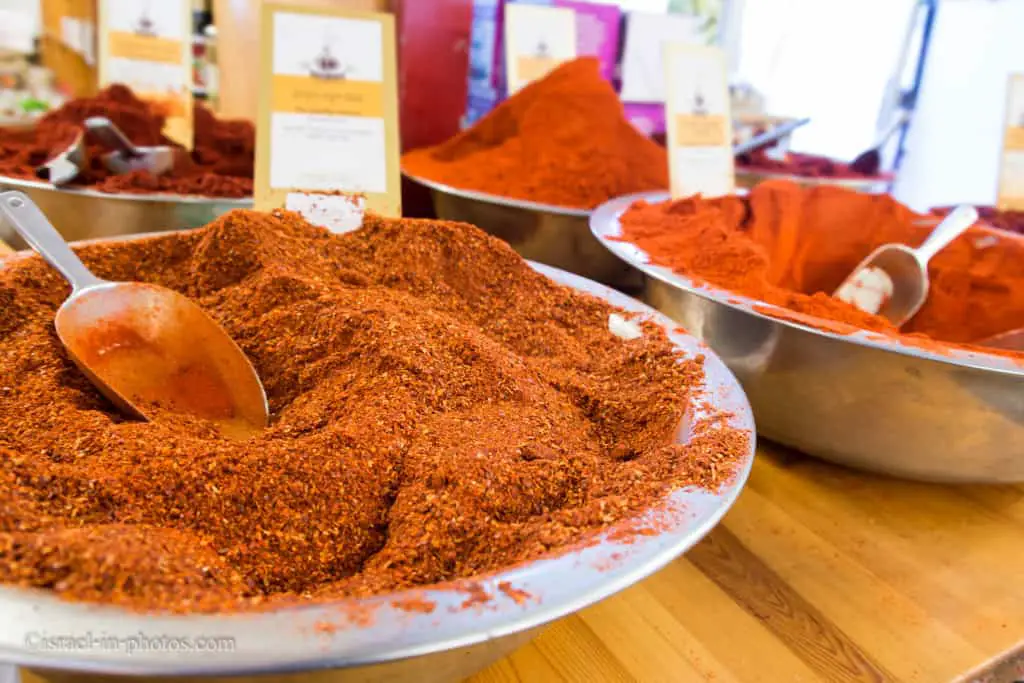
Это большой магазин, окруженный полями, где выращивают много специй.. Кроме того, они предлагают бесплатные экскурсии по этим полям на иврите, где вам расскажут о разных специях и их пользе для здоровья.
Если вы находитесь в области, и хотите, чтобы некоторые специи, вы, скорее всего, найдете то, что вы хотите.
Вот несколько фотографий из Дерех Ха-Тавлиним:
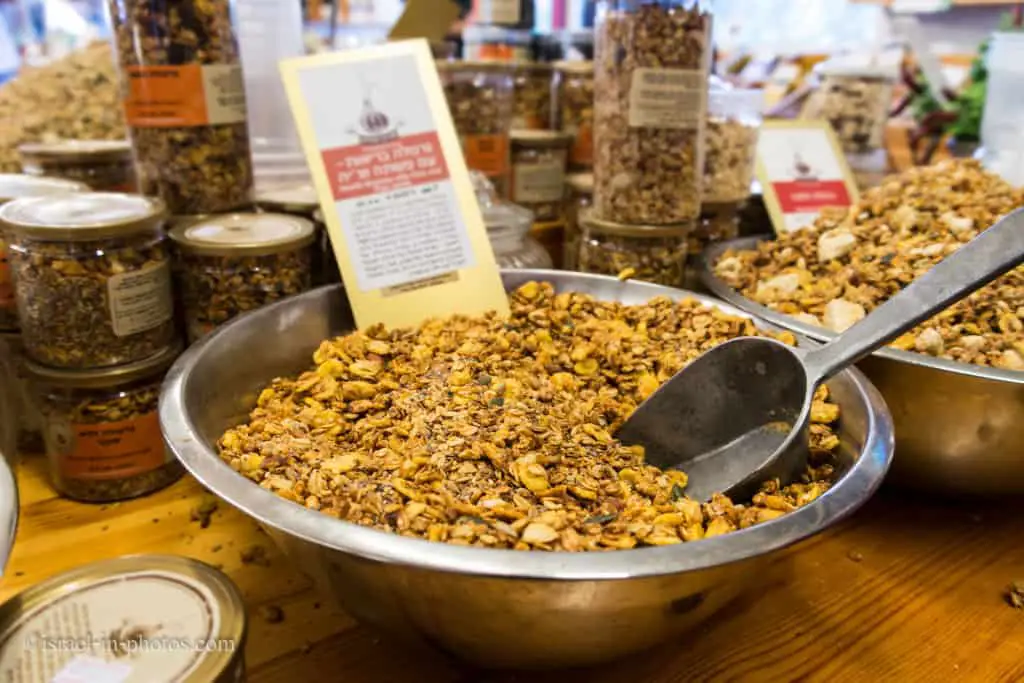
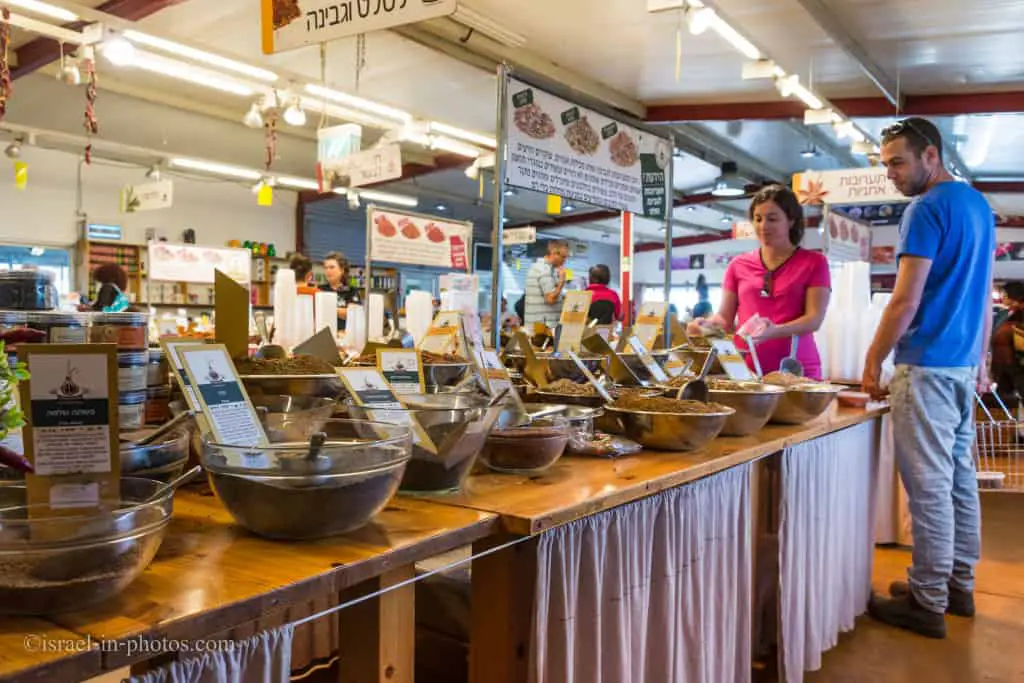
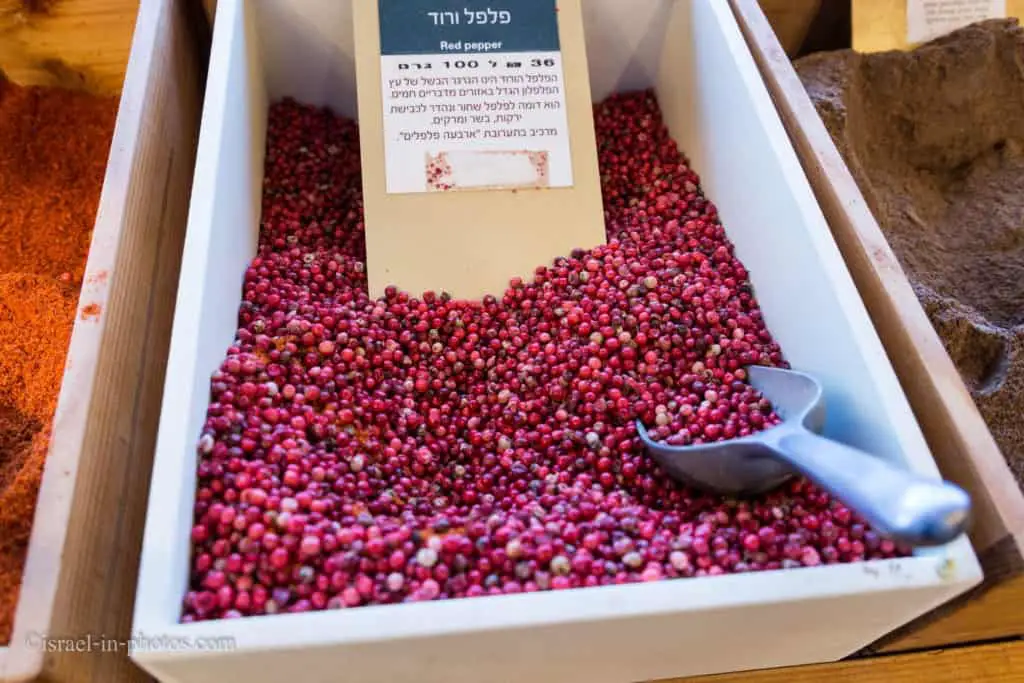
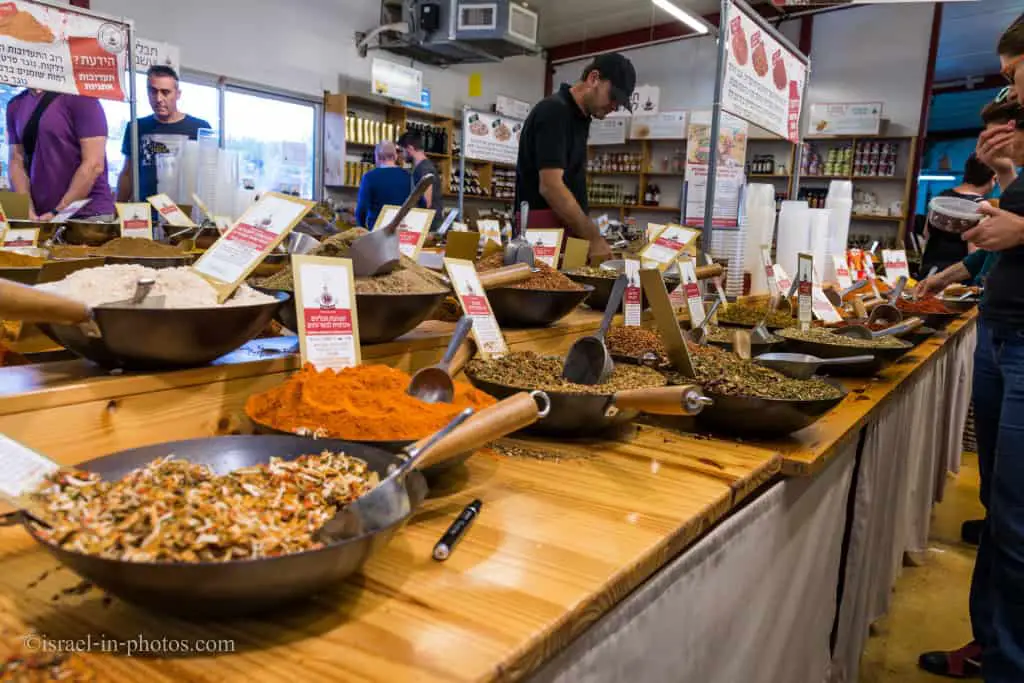
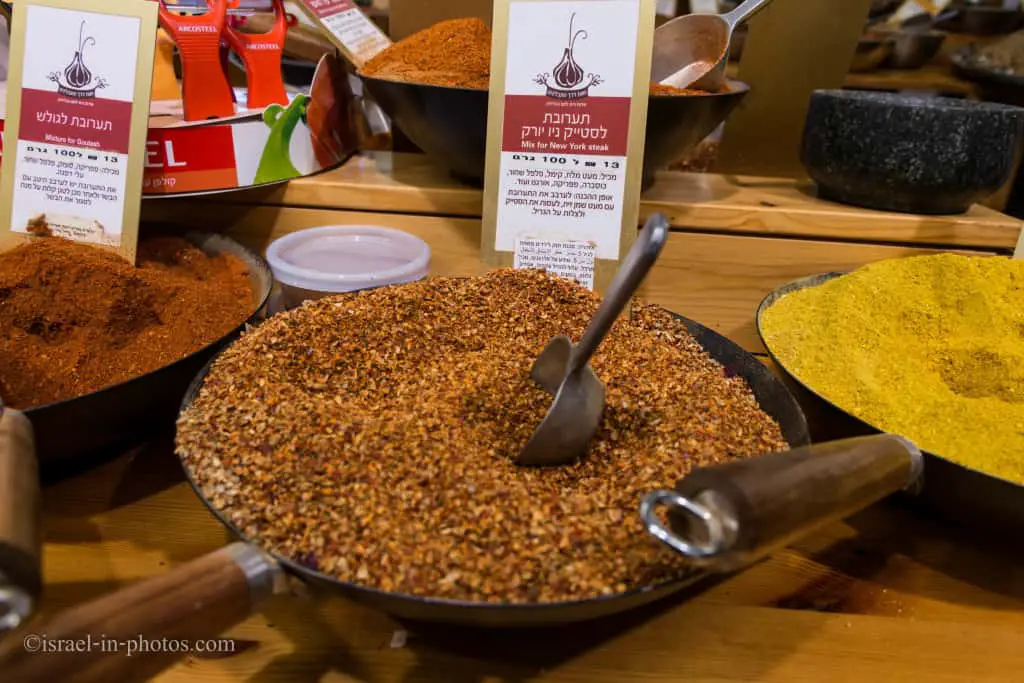
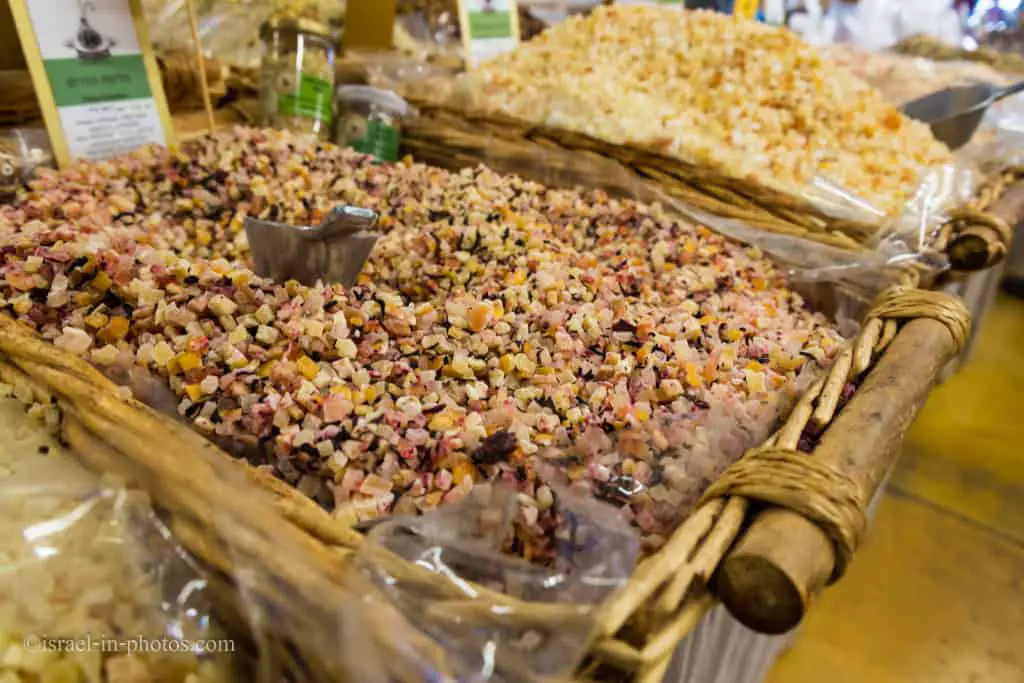
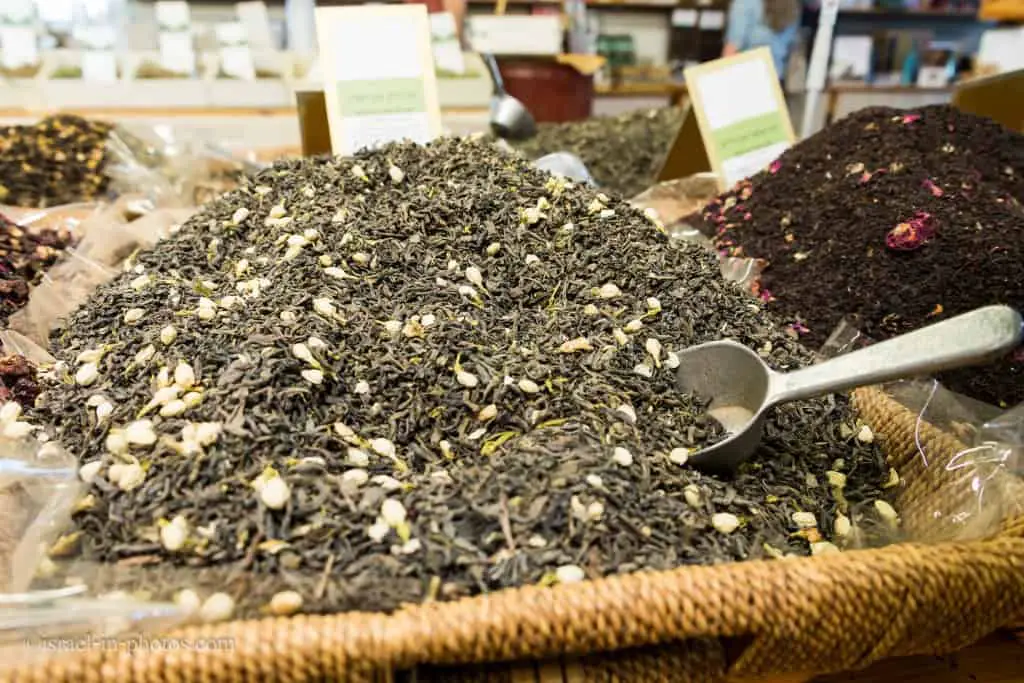
Помимо натуральных специй, они предлагают много различных смесей. И есть предложения по использованию этих смесей. Кроме того, много рабочих на месте, и если вы не уверены или у вас есть вопрос, Вы можете ознакомиться с ними.
Специальность магазин
И последняя серия фотографий была сделана в маленьком магазине в Кфар-Сабе.. Есть такие магазины почти в каждом городе.
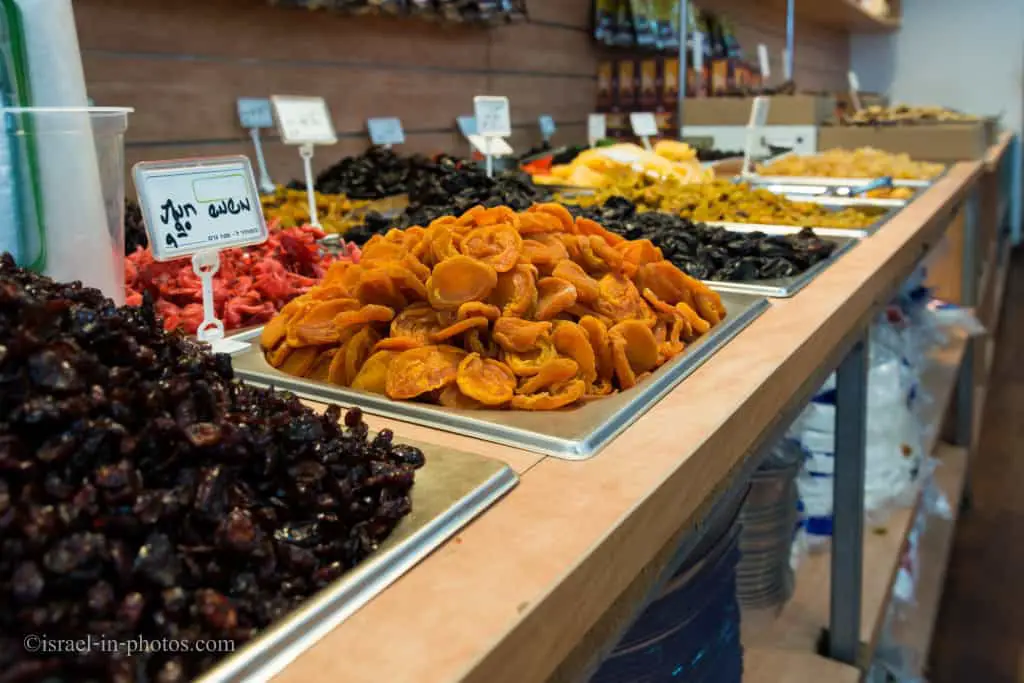
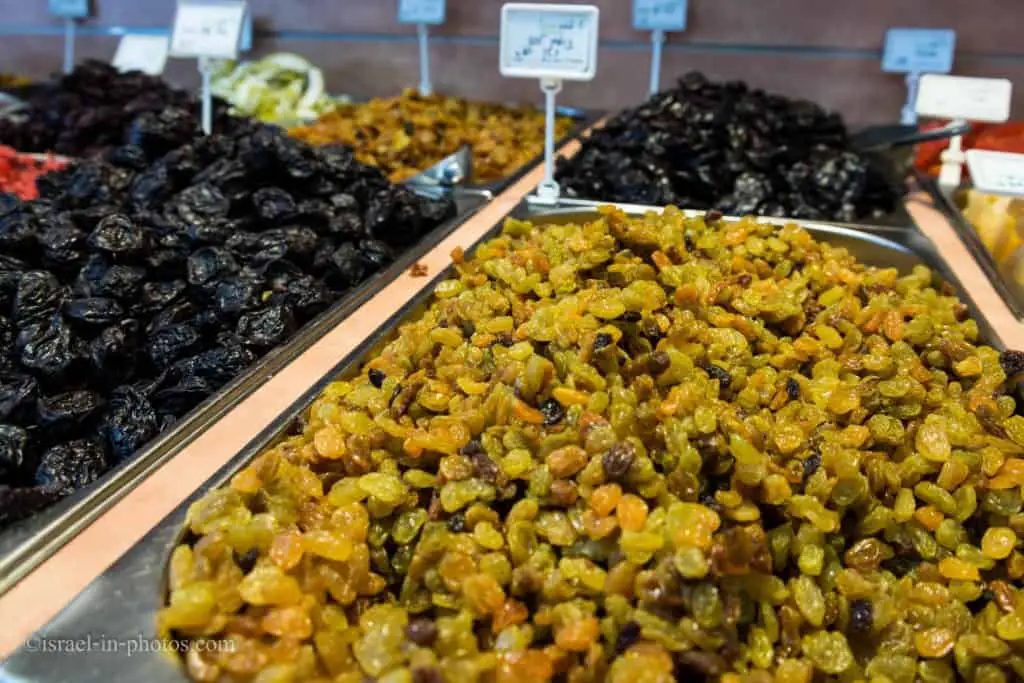
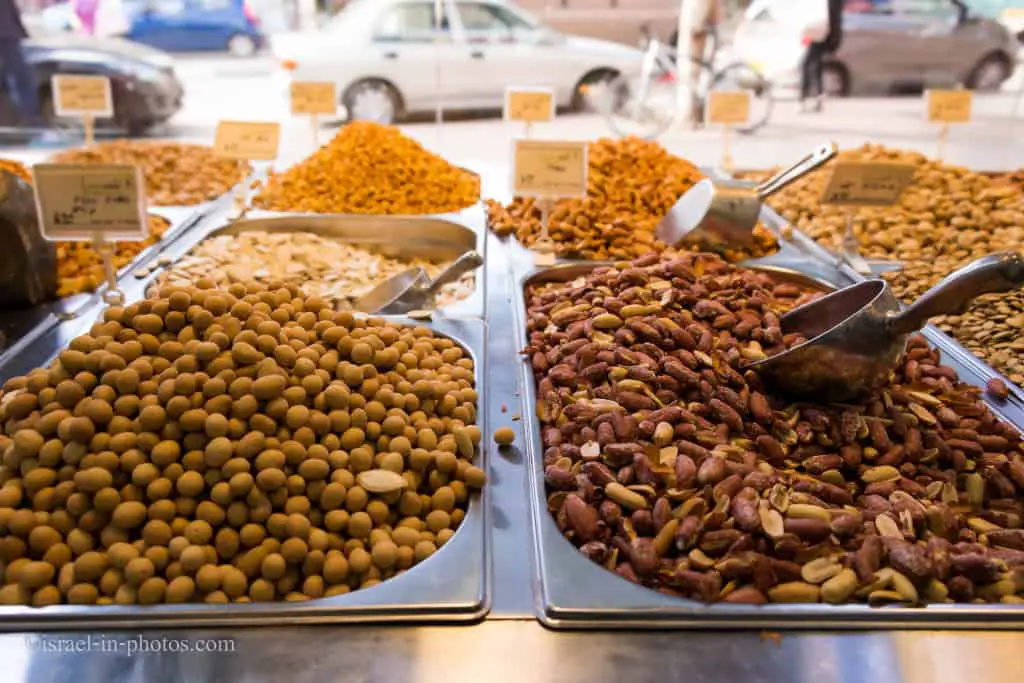
Распространенные вопросы
Какие специи покупать в Израиле?
Существенное преимущество специй и трав является то, что большинство из них не портится. И вы можете хранить их в течение длительного времени.
Кроме того, они, как правило, легкие и не громоздкие, таким образом, не займет много места в багаже. Эти факты делают их идеальными для путешествий. Было сказано, что, Я редко покупаю любые пищевые продукты при выезде за границу. Мир сегодня очень глобальный, и вы можете купить все в Интернете. Например, Я часто покупаю на iHerb.
Но, если вы не в интернет-магазины, рассмотреть что-то из самого популярного списка выше. То, что подходит вашему вкусу и местные продукты.
Если вы ищете идеи для подарков из Израиля, смотрите “Что лучше всего купить в Израиле?” в Полезная Информация Для Туристов В Израиль руководство.
Могу ли я приобрести вакуумные упаковки трав и специй?
Как вы можете видеть из всех фотографий, как правило, все выложенные, и вы кладете требуемое количество в полиэтиленовый пакет или коробку. Вы также можете приобрести расфасованные пункты, но они не вакуумные.
Я никогда не видел в Израиле запечатанных трав и специй, но, возможно, вы найдете такое место. Если так, сообщите нам об этом в комментариях ниже.
Какие ваши любимые травы, специи, и пища в Израиле? Что вы вернулись домой? Поделитесь с нами в комментариях ниже.
Это все на сегодня, и мы увидимся в будущих путешествиях!
Следите за обновлениями!
Для похожих постов, ознакомьтесь с категория продуктов питания.
Дополнительные ресурсы
Вот несколько ресурсов, которые я создал, чтобы помочь путешественникам:- Планировщик поездок с достопримечательностями и маршрутами - страница которая поможет вам создать идеальный маршрут путешествия.
- Какое лучшее время для посещения Израиля? Чтобы ответить на этот вопрос, мы учтем погоду, цены, каникулы, фестивали, и многое другое.
- Информация и советы для туристов в Израиле ответит на самые распространенные вопросы туристов об Израиле (в том числе о безопасности, паспорта, погода, валюта, опрокидывающийся, электричество, и многое другое).
- Национальные парки и заповедники Израиля включить полный список, Топ десять, карта, билеты (Израиль Пасс, Матмон, комбо), и кемпинги.
- Если вы ищете вещи, чтобы сделать, вот страницы для Иерусалим, Тель-Авив, Хайфа, Галилейское море, Акко, Эйлат, Назарет, Цфат, и Махтеш Рамон.

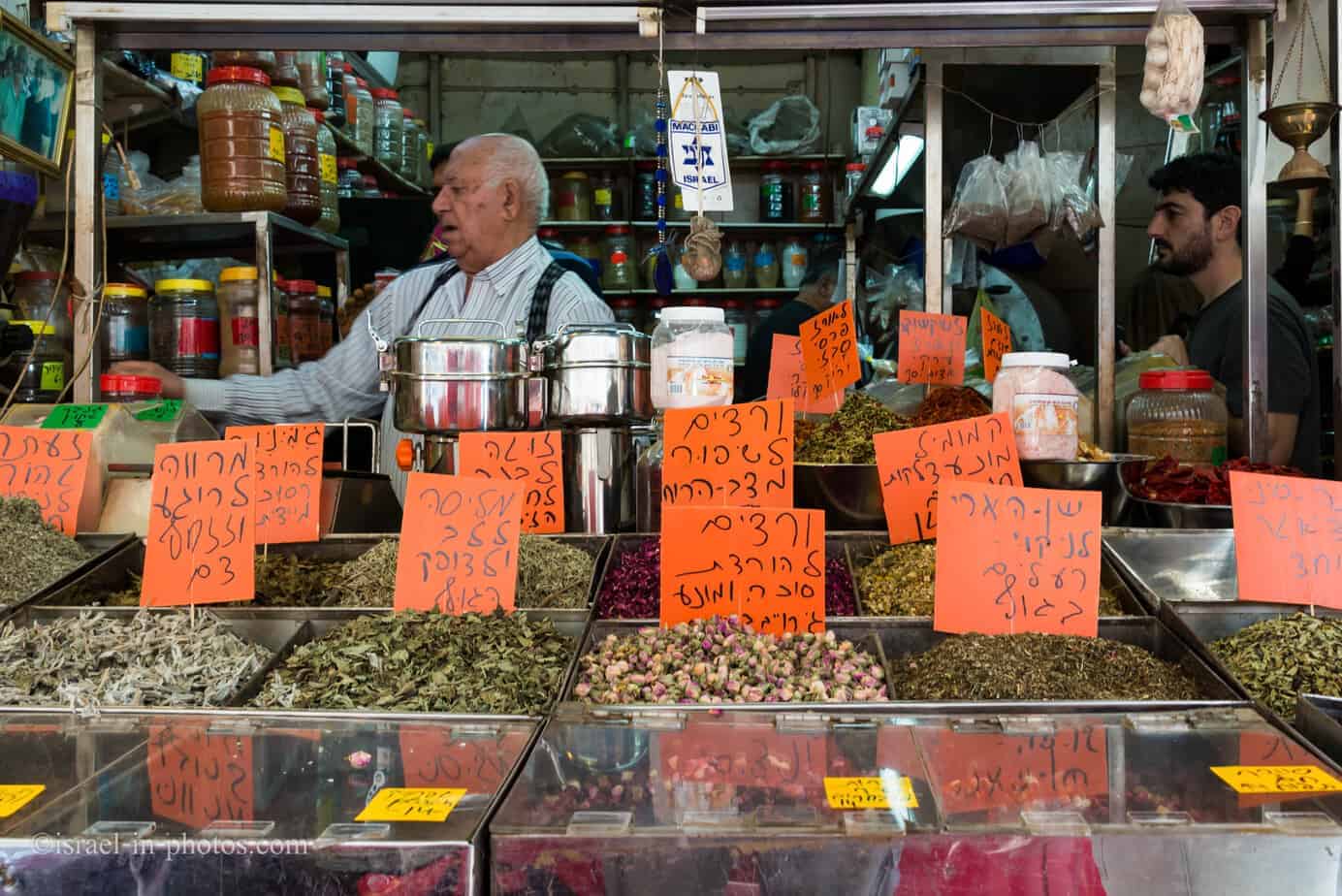
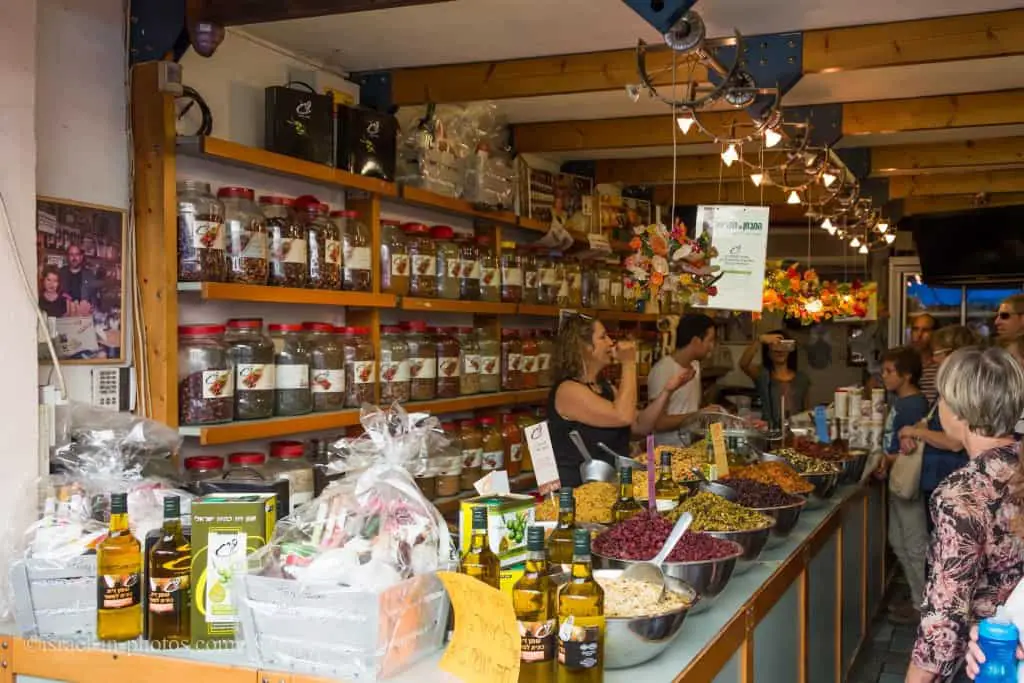


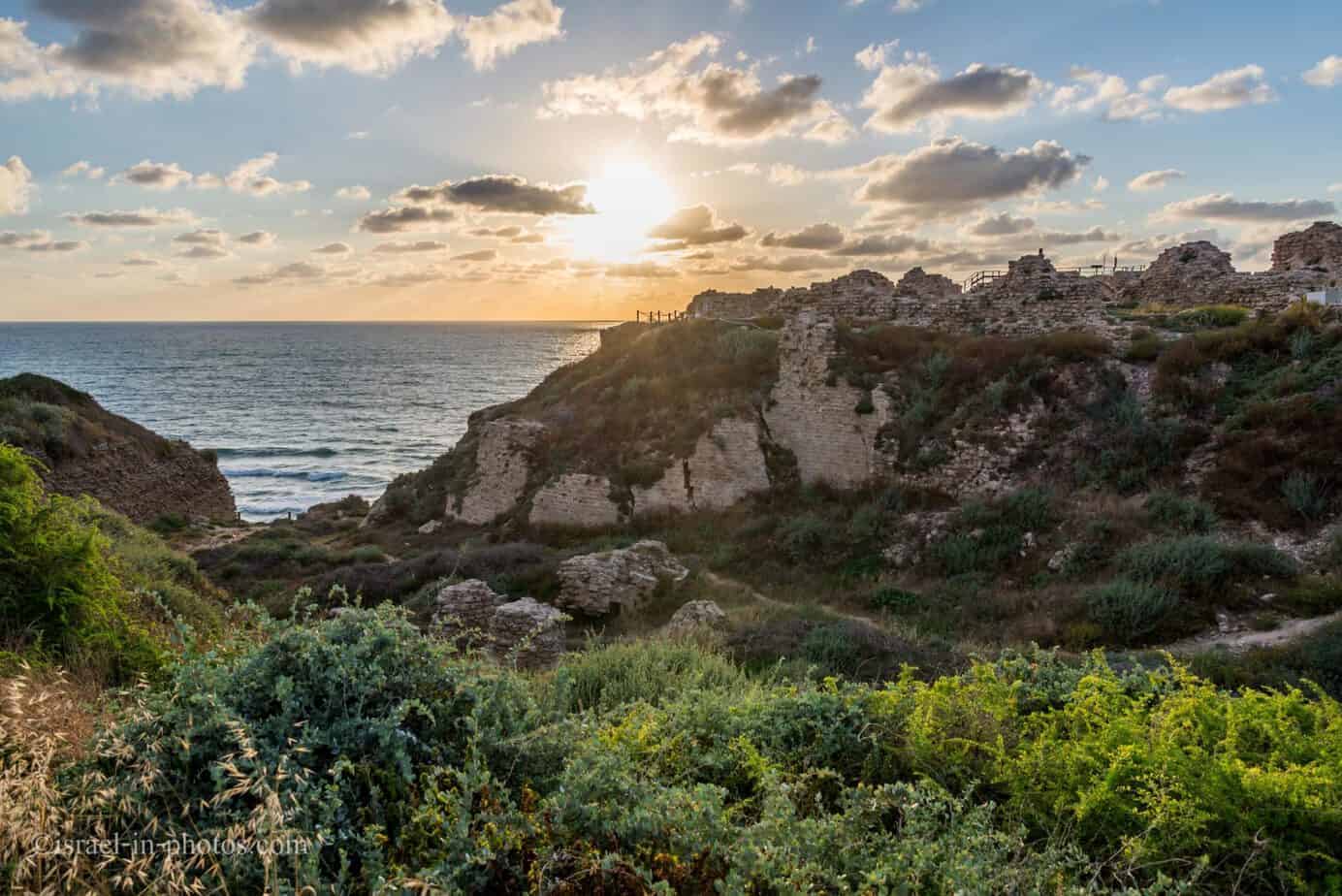



На этой странице, есть много чего.
Орегенальные фотографии.
Лотки с фруктоми и преправоми.
А я ещё не определился что ,бы купить
Из приправ.
Немного порозмыслив
Я решил купить переправу.
Чёрный перец молотый и паприка.
Думаю добавлять это уже
Приготовки в блюда.